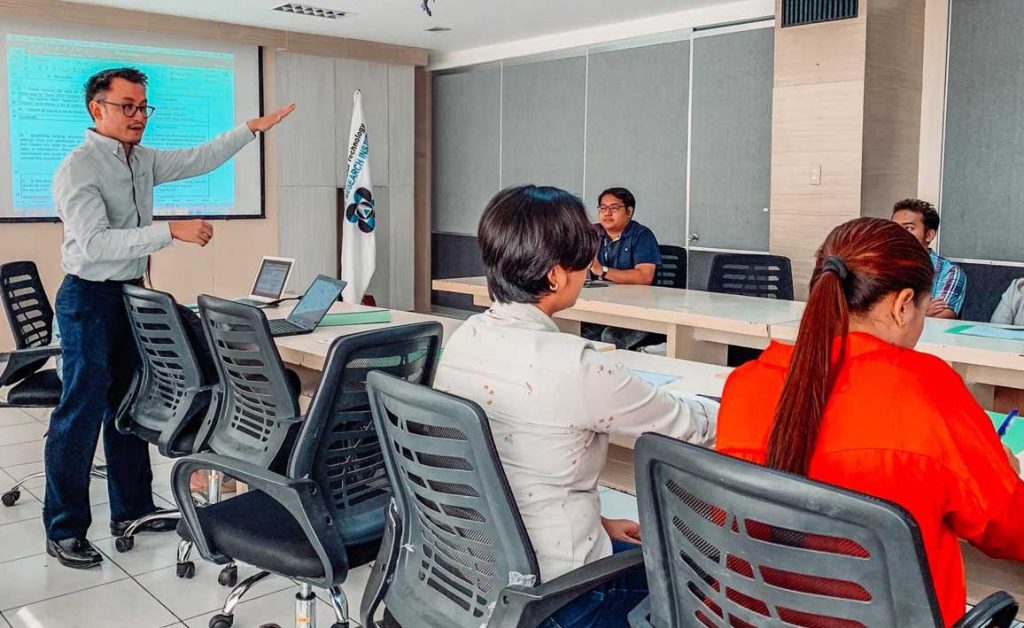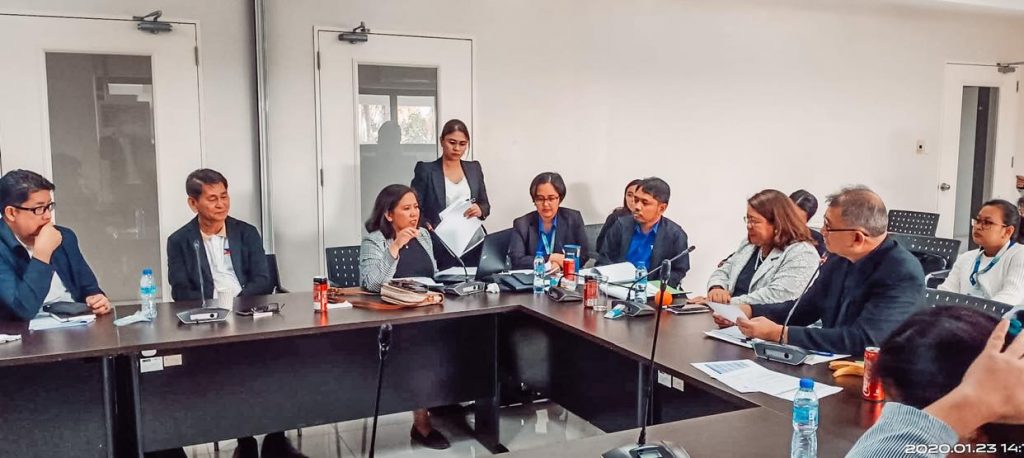Name of the Organization
Technology Application and Promotion Institute
Name of the Office/Unit that leads the implementation of this best practice entry
Invention Development Division (IDD)
Focus Area of the Best Practice
Measurement, Analysis, and Knowledge Management, Risk Assessment
Date the best practice was first implemented
16 July 2015 – up to present
Summary of the Best Practice
One or two decades ago, technology transfer enticed potential takers to adapt, use, or buy a technology package. When the Philippine Technology Transfer Act (Republic Act No.10055) came into law in 2009, due diligence seemed like a textbook theory. But things changed in 2015 when the DOST-Technology and Promotion Institute (TAPI) started to prepare for the possible receipt of requests for fairness opinion issuance that the said law requires in all commercialization efforts from publicly-funded research.
DOST-TAPI, through its Invention Development Division (IDD), developed its intellectual property (IP) due diligence mechanisms, in particular, Freedom to Operate (FTO) and IP valuation, essentially to provide technical support to the Fairness Opinion Board. The efforts either can be supported by or lead to the pioneering publication of FTO and IP valuation books, issuances of guidelines and protocols, and later adoption by the regional offices of the DOST that serve as the current Fairness Opinion Board Secretariat.
The Challenge
In bringing a research product into a market, there is a need to ensure that preparatory works are in place to increase its success and avoid waste of government resources or unnecessary legal battles. Part of the work requires looking into possibilities that there could be blocking patents that would impede market entry through Freedom to Operate assessment, IP valuation to serve as leverage during negotiations and licensing, and dealing with regulatory requirements. On equal footing, the Philippine Technology Transfer Act of 2009 encourages technology commercialization and explicitly requires that publicly funded researches undergo fairness opinion. Since there were no existing models, local or abroad, to use before the first request was received in 2015 for fairness opinion issuance, the DOST-TAPI, as the then secretariat of the Fairness Opinion Board, established the mechanisms from scratch, which included issuances of guidelines and protocols, and later fast-tracking of the services. The Best Practice is now being used by DOST’s regional offices and is now adopted by Research and Development Institutes (RDIs) around the country.

Solution and Impact
DOST-TAPI’s best practice is a due diligence mechanism that was first assessed through environmental scanning to determine whether there are existing models that can be adopted for the instant takeoff of the fairness opinion issuance. There appeared to be none, which became the basis to secure funding from the Department of Science and Technology (DOST) that aimed to support the commercialization of locally-developed technologies and the operationalization of the Fairness Opinion Board (FOB) Secretariat by the DOST-TAPI. In-house capacity building, drafting and issuance of protocols and guidelines, and later training of other agencies were done. Towards the end of 2019, the experiences obtained from the development and use of the Best Practice inspired the amendment of the Implementing Rules and Regulations (IRR) of the Republic Act (RA) No. 10055, which decentralized the role of the FOB Secretariat from DOST-TAPI to the regional offices of the DOST. DOST-TAPI capacitated all of the DOST regional offices to allow them to absorb requests for fairness opinions from their respective jurisprudence.
The best practice of the Institute led to the issuance of several memorandum circulars, such as guidelines to determine licensing royalties, technology commercialization policies, and fast-tracking options to issue fairness opinion reports. It also led to capacity-building activities of DOST stakeholders where thousands of researchers, scientists, policymakers, technology transfer professionals, intellectual property (IP) professionals, government specialists, professors, and students around the country were trained on fairness opinion issuance, Freedom to Operate (FTO), and IP valuation.
The most striking impact, however, that the best practice contributed to public sector innovation is the amendment of the Implementing Rules and Regulations (IRR) of RA 10055. While many parts of the IRR were revised after thorough public consultations around the country, it would be highly distinguishable that Rule 11 was overhauled to present a better modality to issue fairness opinion reports. The following summarizes the revision as triggered by the best practice:
- What cannot be considered as commercialization (Section 2)
- Minimum required documents (Section 6)
- Criteria for fairness, which guides the Fairness Opinion Board to evaluate the financial capability of the technology transferee and its ability to sustain the production, competitive position of the technology transferee, marketability of the product or service that shall be produced from the subject technology(Section 7)
- Contents of the Fairness Opinion Report (Section 8)
The pre-commercialization due diligence mechanism of DOST-TAPI also contributed to the separation of the fairness opinion report to focus on the financial aspects of the transaction and to be issued by an independent third-party body of experts, with that of a Written Recommendation, as elucidated in DOST Memorandum Circular No. 002 s. 2019.

Milestones
With the due diligence mechanism getting handy, the DOST-TAPI was able to operationalize the FOB and created and streamline the processes, in particular Rule 11 of the IRR of RA 10055, leading to 102 IP valuation reports, 313 licensing agreements and term sheets, 61 written recommendations, and 159 fairness opinion reports from 2016 to 2020 as commissioned by theDOST. This also motivated launching of a technology transfer fellowship known as HIRANG: Honing Innovations, Research, Agreements and Negotiations of the Government-Funded Technologies Internship Program, which led to the graduation of 23 technology transfer interns and the signing of 12 licensing agreements.
In 2017, the pioneering team was nominated for the First Annual Awarding Ceremony of BCYF Innovation Awards in Malacañang Palace. The FTO and IP valuation teams of the DOST-TAPI were able to assess several local technologies, including the portfolio of potentially the country’s first unicorn. In July 2021, DOST-TAPI launched its Week-long Accomplishment and Culminating Activity of Special Projects (WACAS) to honor the project team’s accomplishments and included specialized public presentations dubbed “The Specialist†where the Best Practice was presented on two (2) topics, “Assessing IP Quality and FTO through IP Analytics†and “Demystifying IP Valuationâ€.
The specialists comprising the pioneering team from the Invention Development Division are now recognized as subject matter experts on the Best Practice. As proof of interest and adoption, DOST-TAPI specialists are now regularly requested as experts and resource persons by other agencies to teach or discuss FTO, IP valuation, and fairness opinion issuance.
